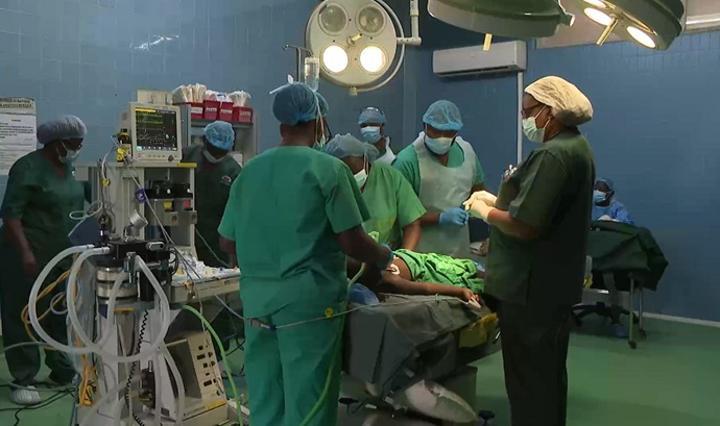Africa-Press – Mozambique. The Mozambican health authorities have revealed that the country faces a critical shortage of surgeons and anaesthetists, which compromises the provision of surgical care and forces the frequent transfer of patients abroad.
According to Machicano Costa, head of the National Surgery Programme, who was speaking on Tuesday at a meeting on “Development of the National Plan for Obstetric Surgery and Anaesthesia”, which is aimed at gathering data and outlining strategies to respond to the needs of the surgical sector, the shortage of surgeons and anaesthetists is particularly serious in the northern provinces of Cabo Delgado and Niassa, the central province of Manica and the southern province of Gaza.
“These provinces have, on average, only one or two Mozambican surgeons. In some cases, there is only one anaesthetist for the entire province, a reality that distances the country from the ideal ratio of 20 surgeons per 100,000 inhabitants”, he said.
Costa explained that this constraint leads to the concentration of patients in the health facilities in the main cities (Maputo, Matola, Beira and Nampula), as well as sending patients to hospitals outside the country, implying high costs for the sector.
The authorities are now assessing the current situation of surgery, obstetrics and anaesthesia services, including staffing, infrastructure and funding. The data collected will guide the setting of targets for the next ten years under the National Plan for Surgery, Obstetrics and Anaesthesia (PNCOA).
“The process includes all stakeholders in the surgical chain, including surgeons, gynaecologists and obstetricians, anaesthetists, surgical technicians, operating theatre nurses and intensive care professionals, in order to ensure an integrated approach”, said Costa.
He also indicated that, although the country continues to rely on the support of foreign doctors, the training of Mozambican specialists must be speeded up.
“In addition to the surgical procedure itself, pre- and post-operative care requires properly trained teams, making it crucial to strengthen training in anaesthesia to ensure greater patient safety”, he said.
For More News And Analysis About Mozambique Follow Africa-Press






